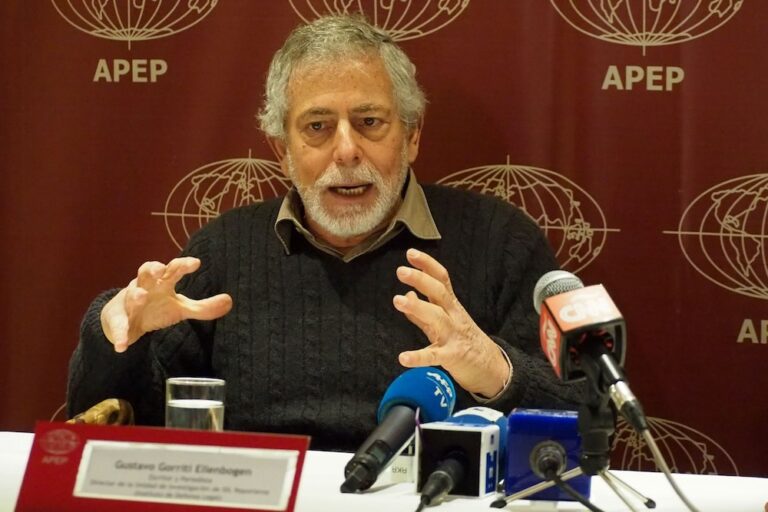(IPYS/IFEX) – The Public Law Court rejected an appeal by the journalists’ association, Prensa Libre, which had argued that the legal proceedings against the group were in violation of journalists’ constitutional rights. The journalists are facing charges brought against them by the chief officers of the National Intelligence Service (Servicio de Inteligencia Nacional, SIN) and […]
(IPYS/IFEX) – The Public Law Court rejected an appeal by the journalists’
association, Prensa Libre, which had argued that the legal proceedings
against the group were in violation of journalists’ constitutional rights.
The journalists are facing charges brought against them by the chief
officers of the National Intelligence Service (Servicio de Inteligencia
Nacional, SIN) and the military judiciary. SIN accused the association of
acting against legal authority and the authority of the court, after the
publication of an article outlining the harassment by secret services agents
of opposition presidential candidates Luis Castañeda Lossio and Alberto
Andrade Carmona.
**Updates IFEX alerts of 30 September and 14 September 1999**
Judge Víctor Raúl Martínez’s verdict was in turn contested by the
association’s lawyer, Beatriz Mejía, who filed an appeal with the Public Law
Court, presided over by Sixto Muñoz Sarmiento. Mejía argued that Judge
Martínez Candela’s ruling was “illegal and absurd” and that the legal
proceedings are an attempt to coerce the defendants “to end their
investigations of the SIN’s and the Army Intelligence Service’s (Servicio de
Inteligencia del Ejército, SIE) actions against presidential candidates Luis
Castañeda Lossio and Alberto Andrade Carmona.”
Judge Martínez Candela ruled that the journalists’ request for guarantees of
their constitutional rights was inadmissible. The judge based his decision
on a Supreme Court statute which establishes that if there are disputed
elements in a case, the matter should be dealt with by the regular courts
and not via an exceptional lawsuit.
The journalists had filed for the protection of their constitutional rights
against the president of the Military Justice Supreme Council (Consejo
Supremo de Justicia Militar, CSJM), General Oscar Granthon Stagnaro, two
military lawyers, and the directors of SIN and SIE. The journalists claimed
that these parties violated their constitutional rights by suggesting to the
Public Ministry that the journalists had committed crimes against legal
authority and the authority of the court.
Background Information
On 25 August 1999, the Prensa Libre Association presented documents and
films showing that opposition members were being followed by members of the
intelligence service. Subsequently, the CSJM (the judicial body of the
Peruvian armed forces), reported that after the press conference it arranged
for an official examination of the documents and came to the conclusion that
they were falsified.
The CSJM in turn accused the Prensa Libre journalists of having allegedly
falsified documents in order to sustain their investigation. However, the
expert who determined that the papers were fraudulent came to this
conclusion based on photocopies of a small reproduction that was published
in the news media. According to the journalists, this invalidates the report
of the expert because he would have had to examine the original documents in
order to come to a trustworthy conclusion (see IFEX alerts).


